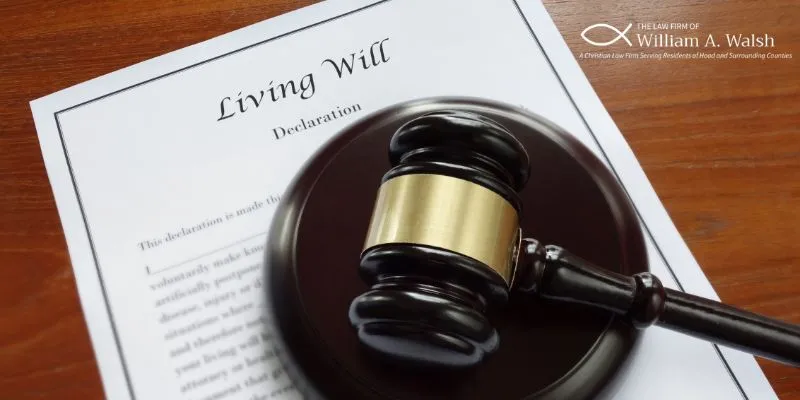It is understandable to not want to think about your own passing, but thinking about what will happen to your assets when that time comes is important if you want to have a say over where they end up. To rest assured that your Granbury, TX estate lies in good hands, you should draw up a last will and testament.
You can draw up a will to specify what will happen to your assets in the event of your death. In it, you can address your debts and discuss what you want to happen to your estate. You can also nominate a person that you trust enough to administer your assets or a guardian you trust will take good care of your children if you are not around to do so. Without a will, the court will decide this for you.
No matter where you are in life or what your socioeconomic status is, it is in your interest to have a will. Having control over what happens to your estate can minimize confusion and tension among your family members when they are wrestling with intense grief and can give them the peace of mind of knowing what you want. Also, in the tragic event of a sudden accident or illness, the last thing you need is the additional stress of planning your estate. Having a will already drawn up can minimize worries for you and your family.

Legally you do not need a lawyer to make a will in Texas, but a lawyer can be an essential asset in preparing it. An experienced will attorney can do everything in their power to help carry out your wishes. If you work alone and make even the smallest of mistakes, your will might be considered invalid in probate court. A will attorney can make sure you avoid such mistakes so you can rest knowing your assets are taken care of to your liking.
Although a Texas lawyer does not have to draw up a will for it to be legally valid, the document does have to adhere to some specific rules. These rules can make it tricky to write up a will on your own because it is vital that you understand all of the legal requirements before you get started writing one.
Texas law recognizes two types of wills that differ based on how they are written:
Holographic will: A will that’s entirely handwritten by the testator (the person who is making the will). If you write a holographic will, all you need to do is sign it. You do not need any witnesses present or a notary to sign too. While these documents require fewer steps than formal wills, they are often weaker than formal wills in court because someone must be able to testify that the holographic will is in the testator’s handwriting.
Attested will: Also called a formal will, an attested will is a will that is not entirely written in the testator’s handwriting. It is usually typed up, and it must be signed by the testator in the presence of two credible witnesses who are at least 14 years old and also sign the will.
In order for your holographic or attested will to be valid, Texas law requires that you adhere to the following criteria:
While it may seem easy to create your own will, the legal rules surrounding wills can be confusing, and one misstep can result in an invalid document. For example, if you write your own will in Texas, it does not need to be notarized. However, if you want to create a self-proving will, meaning that it is considered valid in court without having to contact the two witnesses, then you must have the will notarized. Working with an estate-planning attorney is the easiest way to ensure you understand and follow all of Texas’s legal requirements and that the court divides your possessions exactly how you want them to.
Consulting a Granbury will attorney to guide you through all of the legal aspects involved in drawing up a will can ensure you’ve addressed everything surrounding your unique financial situation. Working with a lawyer to write your will is a critical part of estate planning, and a will lawyer can also provide guidance on other aspects of estate planning if necessary. For example, if you want to transfer your assets into a trust, your attorney can help you understand that process.
It’s completely understandable to be nervous about consulting someone on such personal affairs, but the right will lawyer will handle your estate planning with the utmost respect and privacy. They will take a personalized approach to your situation and take sufficient time to understand what exactly you want and what concerns you may have, like disputes in the family.
An estate planning lawyer can also support your loved ones during probate, the legal process of distributing your assets after you pass. Probate involves making sure the will is valid, distributing assets as articulated in the will, and addressing any debts. While it might seem simple, it takes many months and is often delayed by disputes about the will or the distribution of assets. The right probate lawyer, especially one who is already familiar with your case, can take a strategic approach to probate to make it as short and easy as possible for your family.
Preparing for the future may seem daunting, but the right Granbury estate planning attorney can make it simple. At The Law Firm of William A. Walsh, we take the time to help you understand all of your options and ensure you have a detailed, legally sound will that represents your desired plan for your estate. We are dedicated to providing help for our clients that is affordable and to their satisfaction. Contact us today if you are ready to craft a concrete plan for your future.